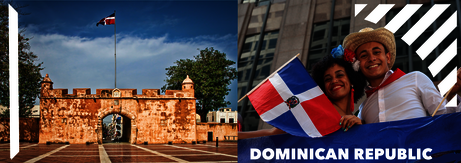Summary of operations
Road Infrastructure: Financing for 148 kilometers of highways.
Energy: Financing for the generation of 80 megawatts of clean renewable energy.
Agro Sector: US$ 60 million for the strengthening of the agricultural sector with a sustainable technological approach.
A 228% increase in the amount estimated in the 2021-2026 country strategy, reaching US$ 1.8 billion. In the previous five-year period the disbursement amounted US$ 533.9 million.
PROJECTS
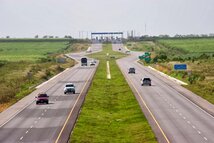
Coral Highway Project
It consisted of the construction of a 70-kilometer-long, 4-lane highway, for which financing of US$70.0 million was allocated.
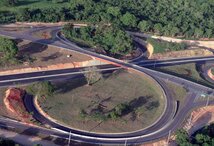
Improvement and Expansion of the Eastern Road Corridor for road sections
San Pedro de Macorís-La Romana Section, La Romana Beltway Section and Eastern Tourist Boulevard Section, totaling 78 kilometers in length and representing the best road infrastructure in the country.
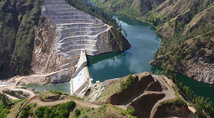
Palomino Hydroelectric Project
With a clean and renewable energy generation capacity of 80 megawatts, it is located in the Province of San Juan. For its execution, the Bank allocated financing for a total amount of US$ 130.0 million
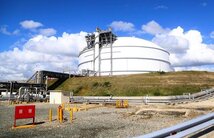
Construction of a 50-kilometer gas pipeline in San Pedro de Macorís
Loan in favor of AES Dominicana for a total amount of US$54.00 million.
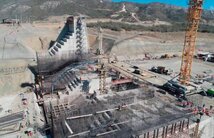
Montegrande Multipurpose Dam Project Phase III
With current financing of US$249.6 million
CABEI will support the Dominican Republic with US$50.0 million for the purchase of the COVID-19 vaccine

The fast-disbursing funds will support the country's efforts for priority access to these vaccines.
Tegucigalpa, December 17th, 2020.- In order to support the efforts of its member countries to face the health crisis caused by COVID-19, the Central American Bank for Economic Integration (CABEI) made resources available in the order of US$400.0 million for the acquisition and application of these medical products.
The US$400 million is part of the Emergency Support and Preparation Program for COVID-19 and Economic Reactivation, which now stands at US$2,360.1 million. The Program has accompanied the Bank's member countries by providing fast-disbursing financial resources to finance operations for the prevention, detection, and treatment of COVID-19 and the mitigation of its economic impact in the countries.
Recently, the government of the Dominican Republic, through the Ministry of Finance, expressed interest in making use of this facility for the amount of US$50.0 million for the purchase and application of the vaccine to immunize the population against COVID-19.
In several interventions to the press, CABEI's Executive President, Dr. Dante Mossi, has commented that ""we are the first bank in the world to issue a thematic bond for the vaccine and two countries, El Salvador, and Honduras, have already requested financing for the purchase of the vaccine.
CABEI will grant 50 million dollars to each of the eight beneficiary countries of the institution: Belize, Guatemala, El Salvador, Honduras, Nicaragua, Costa Rica, Panama, and the Dominican Republic.
The emergency funds will be lent for 20 years with interest rates below 3%.
During this year, CABEI created the "Emergency Support and Preparation Program for COVID-19 and Economic Reactivation", for an amount of more than 2.6 billion dollars to mitigate the negative economic and social effects caused by the pandemic.
This initiative included donations to partner countries of both economic and medical supplies amounting to $13 million, the provision of $600 million in loans to finance public sector operations, as well as $350 million to finance micro, small and medium enterprises through the Bank's financial partners.

